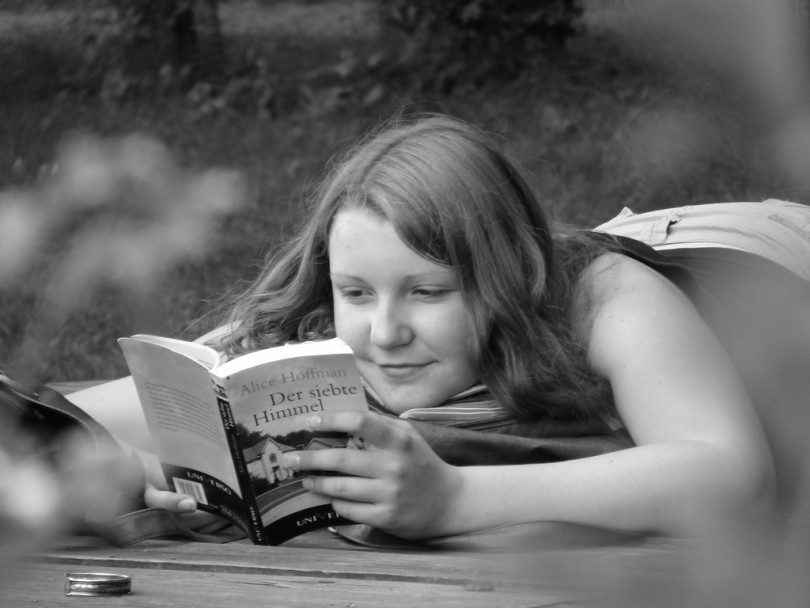One of the first indicators of an individual’s personality is the way he or she speaks. And often, speech is highly dependent on what one reads. Reading is also a great way to improve one’s style of writing. If you are an aspiring writer, or just wish to enhance your personality, here are some tips on how to read and write better.
I read somewhere that what you read defines the way you think, speak and write. It is true. If a person only reads film magazines, one can guess the limitations of his vocabulary and general knowledge. On the other hand, voracious readers are known to have knowledge about several topics and they generally speak and write well too.
How to read better
So what does one have to do to read better?
To begin with – start reading! The habit of reading books during one’s spare time, as a hobby or before going to bed is slowly dying out. Kids (and adults) watch more television than is good for them. So, if you want to read better, first start reading!
It is good to start with newspapers. Practically every household subscribes to one or more. However, the standard of writing in most Indian English dailies has been deteriorating; while newspapers will keep you abreast of the latest news, they may not be the best route to improve your writing. If you have the time to surf the Net through the day, try reading the Guardian, New York Times or Sydney Morning Herald; these newspapers have a very high standard of writing and their writers are known to write informative pieces in a non-clichéd style.
You can also look at magazines like Time, Vanity Fair, National Geographic, Economist and the like. The stories that are published in these magazines are well researched, detailed and extremely well crafted. Plus, one gets to gain knowledge on a wide array of topics. If you are an iPad or tablet junkie (or own one), you can subscribe to the iPad editions of many of the good newspapers and magazines.
If you don’t have time during the day and can only read at night or on weekends, you should pick books on topics that are of interest to you. Whether you read fiction or non-fiction, make it a point to read at least one book a month on a subject you like. That is, till you get used to the habit of reading. Then you can increase the number of books you read depending on your speed.
Once you are in the habit of reading regularly, you can explore options. For example, if you like a particular genre of fiction, you can read other authors who write on the same subject. If courtroom dramas and murder mysteries are your thing, you can move from John Grisham to Michael Connelly and Steve Martini. You could also pick up books by many Indian authors who have gained prominence over the past few years.
In fact, once you start reading, you may even discover an abiding interest in a topic that you didn’t know you liked earlier. It was not until I started reading American author Patricia Cornwell that I realized how much I enjoyed reading about forensic science.
One writer whose works you can’t go wrong with is William Shakespeare. His plays are a tad difficult to read, especially for people who have not studied literature. But, even today, 400 years after his death, we all use words and phrases in our everyday lingo that were coined by him.
Here again, you have the option of reading on an iPad (or a Kindle). Amazon has thousands of books that you could buy and download on an iPad or Kindle; I love this option because I now have hundreds of downloaded books that don’t take any space! Moreover, one can download many classics (including the entire works of Shakespeare) absolutely free of cost! Tablets have another great advantage – you can change the font sizes and the colour of the pages.
Some people are very slow readers. Usually, not reading regularly makes you pore over each page and it takes more time to finish a book than a regular reader would take. There are books and even information on the Net that can teach you how to read faster. The most common technique is to read 3-4 words together. Many speed reading books recommend that you don’t read all the words but scan the pages to pick out the more relevant and important information.
Some authors, at times, use words that not everyone understands or words that are not part of one’s everyday vocabulary. It helps to keep a dictionary and a thesaurus around. That way, if a word doesn’t make sense, you can always look it up. While this can be tedious, it is a great way to improve one’s vocabulary.
If you have kids of your own – and they are still toddlers – you should inculcate the reading habit in them too. Start by reading fairy tales and other story books for children aloud at bedtime. Children follow adult behaviours so if they see you read, they will start reading too.
Another way to read better is to visit bookshops regularly. Most bookshops place tags on books that are bestsellers. Many newspapers also feature a bestseller list every week. That way you get to know which book to pick in case you are confused with the information overload. You could also visit the Amazon site – it has reader reviews and ratings for almost every book and that will allow you to make considered choices.
You should also try and become a member of a library. The British Council library is a great option; you get to choose from a wide range of books and don’t have to spend monies buying expensive books (except those that you want to read regularly).
Nowadays, you get books – especially paperbacks – that are in a large font size. This may make the book bulky but it makes reading faster as the letters are large.
Another great source of good reading is biographies and autobiographies. You can choose from all the ones out there on the bookshelves based on people who inspire you or people you admire. The recent Steve Jobs biography by Walter Isaacson is highly recommended.
To conclude, all I can say is that whenever you can find the time, pick up a book. Waiting for a flight, on the plane, in a long train journey, lack of anything to do on a Saturday afternoon – reach for a book. If you have trouble falling asleep at night, pick a good novel, it will help you relax. Ask any genuine book lover about these wonderful companions, and most will tell you – so many books, such little time.
How to write better
While reading is accessible to most people, not everyone has the creativity to be a writer. It is a myth that anyone can write – propelled no doubt by the splurge of blogs and increased media options. Here quality is not the main criteria – quantity is. And no matter who it is, if you have to churn out copy everyday, based on interviews probably conducted over the phone, there is no time to focus on quality.
The days when newspaper editors and their publications were the benchmark of good writing are gone. One knew the names of the editors – they were the real celebrities. These days, no one knows or cares.
However, it is still possible to learn to write well. Long, convoluted, grammatically incorrect sentences and clichés are usually what one reads these days. While media schools offering journalism courses are ubiquitous, they can only teach you the techniques, not the style. Good writing comes from within. It is nourished by good reading, an urge to be extraordinary and, yes, the instinct to see things differently from the way the world sees it.
So, reading books on creative writing is a big help to start with. These books give you effective pointers on how to unleash your creativity, how to look at things from various perspectives. Some will even give you exercises to do and if done religiously, they do produce results. I can vouch for this from my own experience. Some exercises are simple, some are hard. But they work.
Another sure-fire way to write better is to read the writings of established writers; it helps if you read international magazines known for their quality. It gives you a perspective of worldwide trends and one is always picking up a new word or current lingo.
The best way to write better, though, is to write – a lot! Whether it is blogs, a diary, stories, interviews – whatever it is that charges you up, write. The more you write, the better you will get at it. Over a period of time, you will notice the sentences are short, lucid and cliché free. It will happen provided you pay attention to what you are writing, of course.
Also, a good way to write better is to step back from your work after you have finished. Then look at it objectively, edit your work and polish it up. Rewriting is not a bad thing.
Another way to write better is to conduct research. Before you write about a subject, do read up on the topic. Especially if you know nothing about it. The more in-depth your information, the better your composition will read.
The brain is a muscle and like the other muscles, the more it is exercised the better it gets. Writing is a skill that can only be enhanced by doing it often, and doing it right. Not every prolific writer is a good one. So make it a point to read good writing; it will help you become a good writer.
Visual Courtesy:http://www.flickr.com/photos/ruifernandes/







